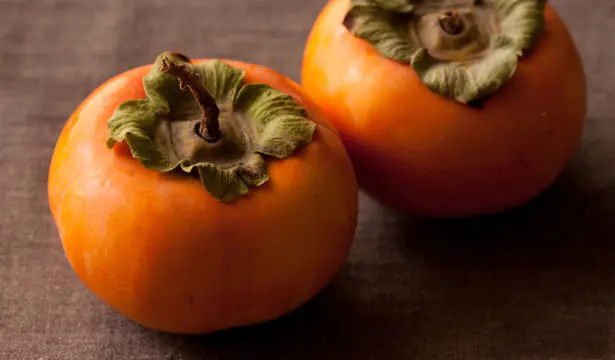At the end of autumn, the persimmon season begins and it will last until the first frost. Below you will find out why it is so important to eat your fill of this juicy and sweet berry in this short period of time.
Persimmon is not a fruit, as many may think, but a large berry with a juicy core. It comes in yellow, orange and red colors.
Black dots and spots on the fruit indicate that the persimmon has already begun to deteriorate. Ripe persimmons can be kept in the refrigerator, and frozen ones can be stored for up to six months.
Like any berry, persimmon is rich in vitamins, macro and microelements. But besides this, it has numerous beneficial properties:
For good health:
-
prevents cancer
-
improves vision
-
increases immunity
-
helps with gastrointestinal disorders, and its pulp has a bactericidal effect
-
helps with thyroid diseases, as it contains iodine
-
useful for the prevention and treatment of cardiovascular diseases, anemia, varicose veins, bleeding gums
-
normalizes the functioning of the reproductive system
-
quickly satisfies hunger
-
has a diuretic effect
-
increases performance
-
calms the nervous system
-
has tonic properties.
For beauty:
-
prevents premature skin aging
-
brightens and evens out skin tone
-
controls sebum production
-
improves hair condition.
Folk recipes for using persimmon for medicinal purposes:
-
with anemia. You need to drink 50-100 ml of persimmon juice 2 times a day before meals.
-
for colds and coughs. Gargle with the juice of one ripe persimmon diluted in a glass of warm water.
-
for bleeding gums, hypertension. Take a quarter teaspoon of powder obtained from crushed persimmon leaves 2 times a day for a week.
-
for chronic diarrhea. Drink a decoction of persimmon fruits, 500 ml every 4 hours. To prepare the decoction: cut 6 ripe fruits into medium slices, pour in 3 glasses of boiling water, cover with a lid and leave for 20 minutes. Then express.
-
to get rid of acne, as well as to restore facial skin tone. You can make a face mask: mix persimmon pulp with egg yolk.
Contraindications: persimmon should not be consumed by people after operations on the stomach or intestines, with adhesive disease and in cases of a poorly functioning digestive system. It is not recommended to consume persimmons for diabetes and obesity, due to the high content of easily digestible sugars.



